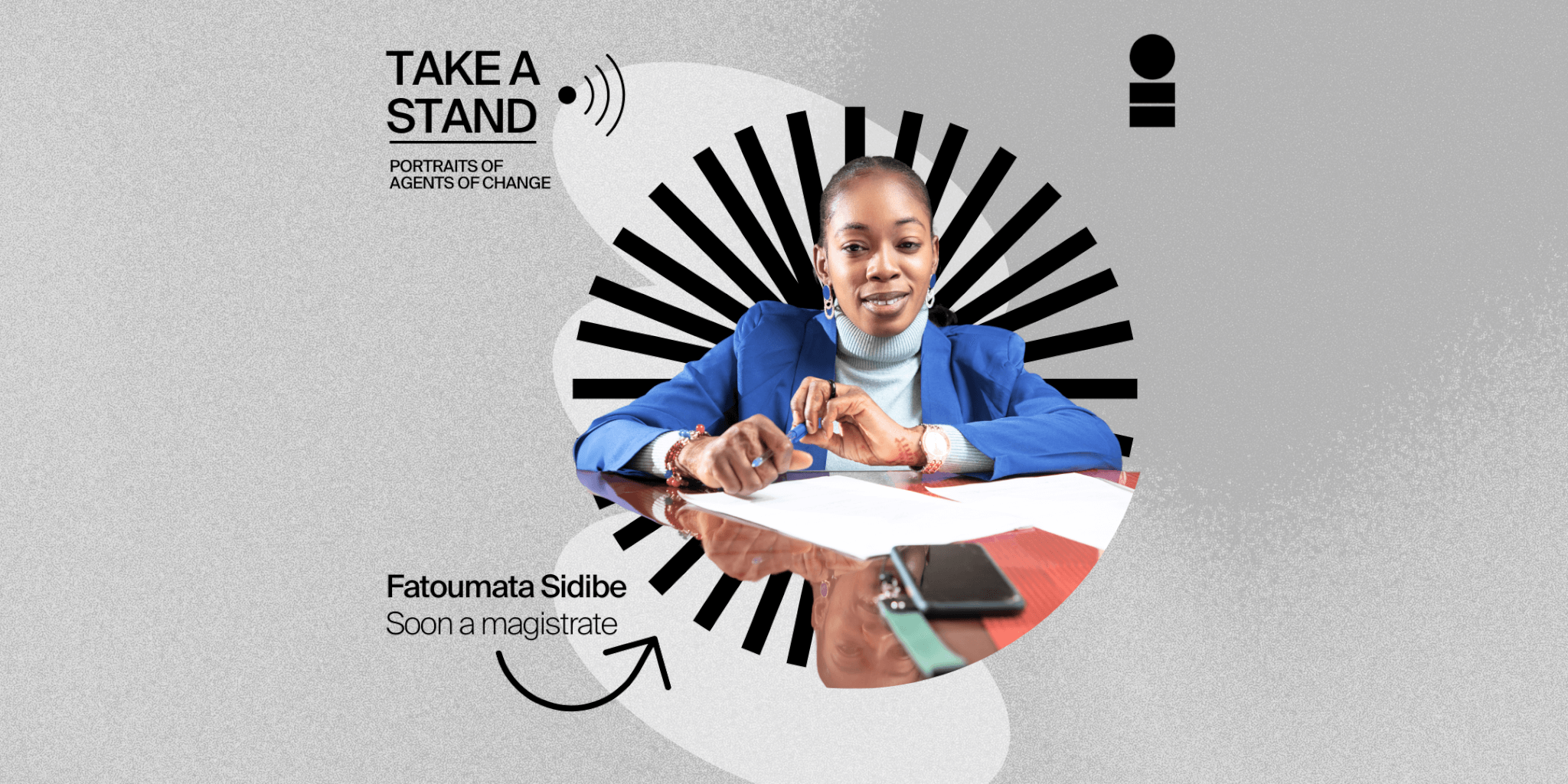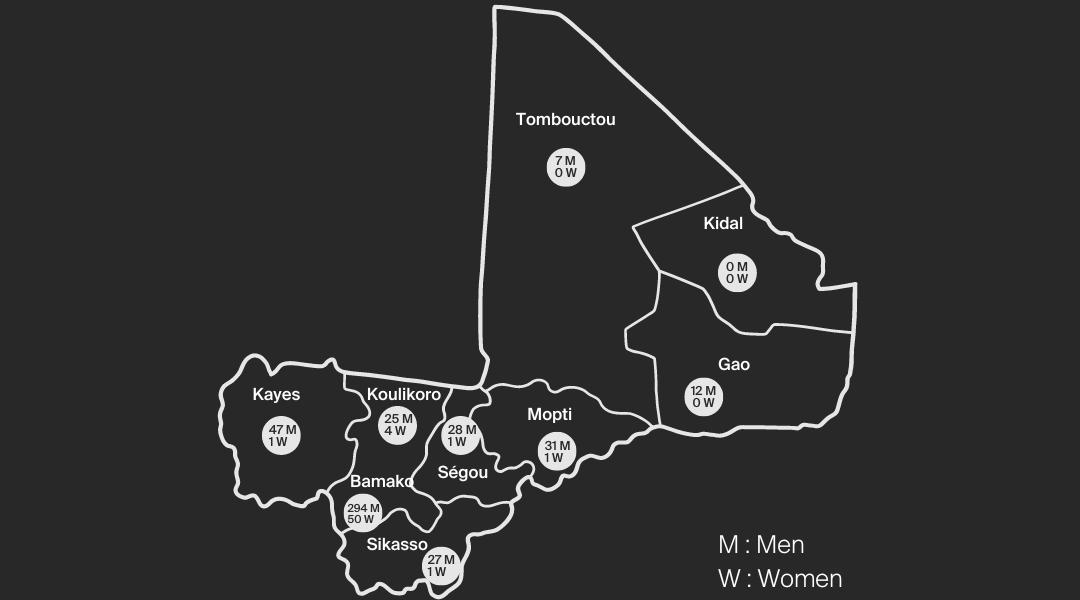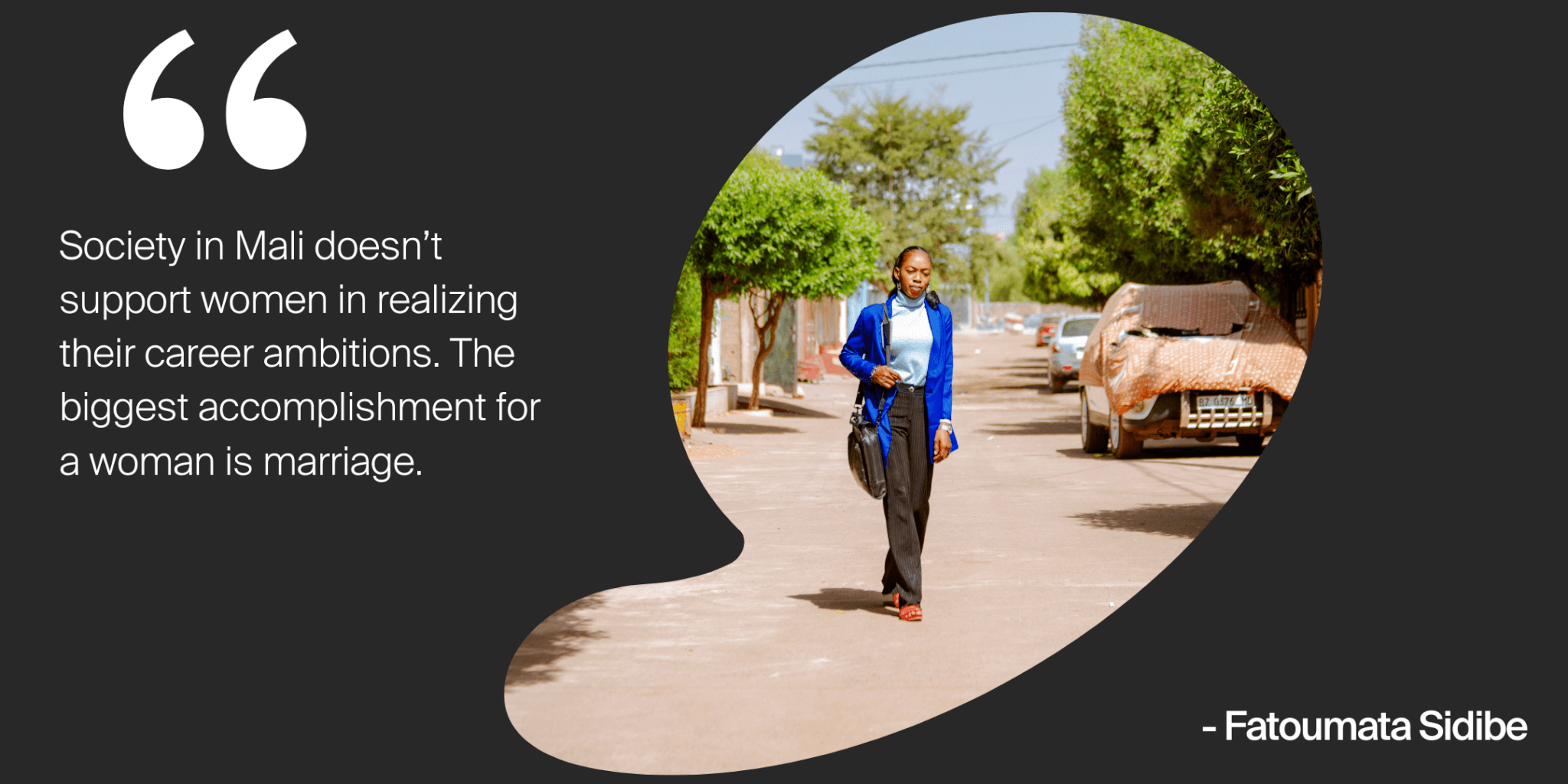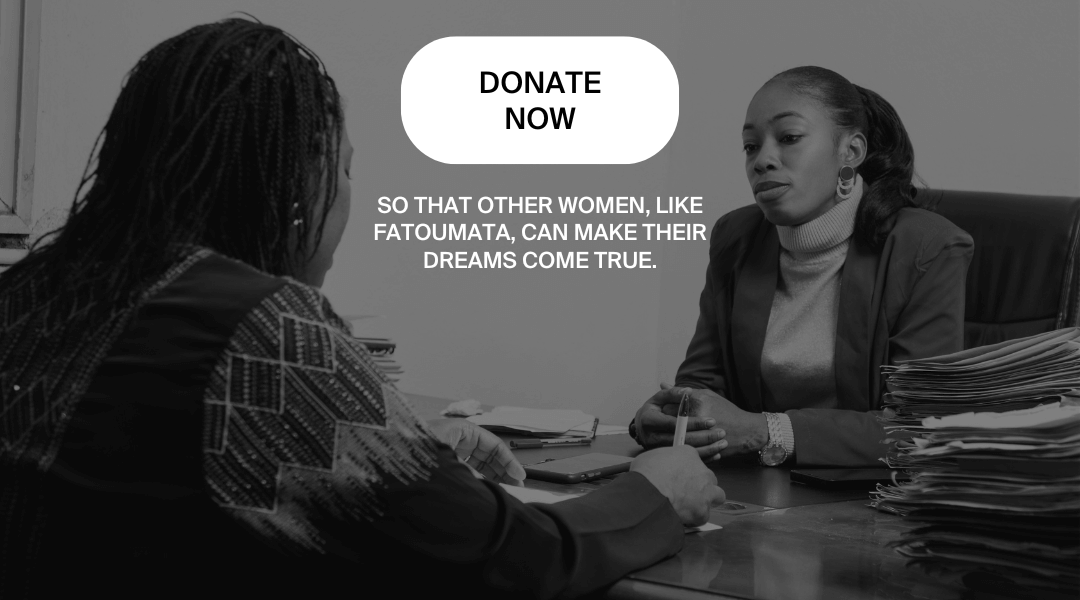
Fatoumata Sidibe has always been passionate about the law. Even when still in high school, she was already captivated by legal dramas and courtroom. With a strong sense of the many injustices in her country, she dreamed of becoming a magistrate.
Fatoumata believes that “the law is a fundamental pillar of society.”
Behind her soft voice lies determination. And rightly so, as the young legal specialist is about to make her professional ambition a reality. She passed the magistrature exam in 2023 after completing the preparation course provided by Lawyers without Borders Canada (LWB Canada). Fatoumata is all set to become one of the country’s few women magistrates. There are fifty or so magistrates in Mali, but some regions, like Kidal, have neither lawyers nor magistrates.
Unlike other women her age, Fatoumata’s family supported her in her endeavours to achieve her dream job. Her father, a civil servant, wanted to see her succeed in her career, while her mother provided moral support. Her uncle let her stay with him in Bamako, allowing Fatoumata, who used to live in the region of Koulikoro, to pursue her studies in the country’s capital city. That’s not to say the road to obtaining her degree wasn’t a battle. She endured a two-hour commute every day to attend university, struggled to access hard-to-find textbooks, and put up with the negative stigma in Malian society surrounding the idea of women entering the job market.
“Society in Mali doesn’t support women in realizing their career ambitions. The biggest accomplishment for a woman is marriage. Legal studies require a lot of determination and time – something married women and mothers only have access to with difficulty,” she says.
Mali needs female lawyers and magistrates – and generally, more legal practitioners. The armed conflict has brought about social and political disruption and has heightened risks of human rights violations. It has also exacerbated gender-based violence, including gang rapes, sexual exploitation of displaced women, forced marriages and child marriages, as well as slave-like living conditions.
The magistrature preparation course provided LWB Canada introduced Fatoumata to human rights, a field of expertise which aligns deeply with the values she upholds.

Map of the magistracy in Mali, 2024.
The magistrature preparation course provided LWB Canada introduced Fatoumata to human rights, a field of expertise which aligns deeply with the values she upholds.
“People don’t know they have rights. As a magistrate, I intend to promote and protect human rights and fight all forms of gender-based violence.”
Fatoumata is aware of the sheer scope of the needs in rural and remote areas.
“I am willing to practice law in the north or the centre of the country. I’d gladly be open to any region in Mali, they are all part of Mali!”
Some facts about the magistrature in Bamako
– For a population of over 22 million, Mali only has 528 magistrates, which is four times fewer than international standards.
– Instability on a political and security level, high tuition fees, and the fact that law faculties are located in urban areas makes for particularly cumbersome obstacles for becoming a magistrate.
– The university degree lasts four years and you have to pass an entrance exam.
– Few exams have been held since 2022, and preparation courses are scarce and only lightly touch upon international law and human rights.
– The formal employment rate for women in Mali is only 12%.
Sources
Gender-based Analysis Plus (GBA Plus) (LWB Canada)
Comparative analysis of the difficulties faced by young lawyers, particularly women, in gaining access to the legal and judicial professions in Mali – only available in French (LWB Canada)
Wage and salaried workers, female (% of female employment – Mali (World Bank)
The Justice and Peace in Mali project (JUPAX), funded by Global Affairs Canada, aims to position the law as a tool to advance the empowerment of women, girls, and people in vulnerable situations, enabling them to assert and exercise their human rights effectively.
The magistrature preparation course is part of the JUPAX project’s next generation empowerment focus and aims to train young legal practitioners in Mali and provide them with relevant experience to ensure they have the tools they need for life in the working world.

